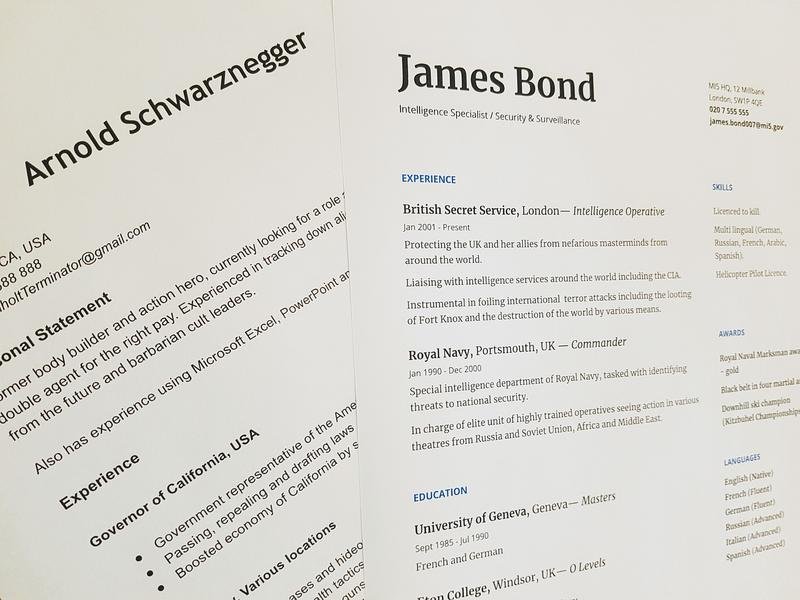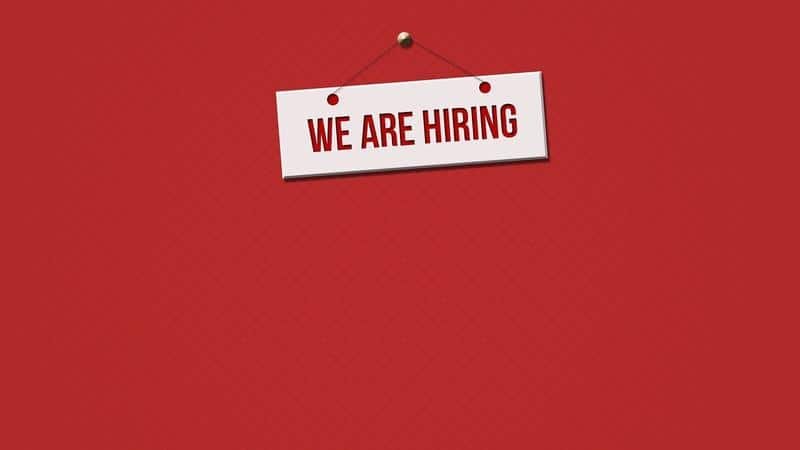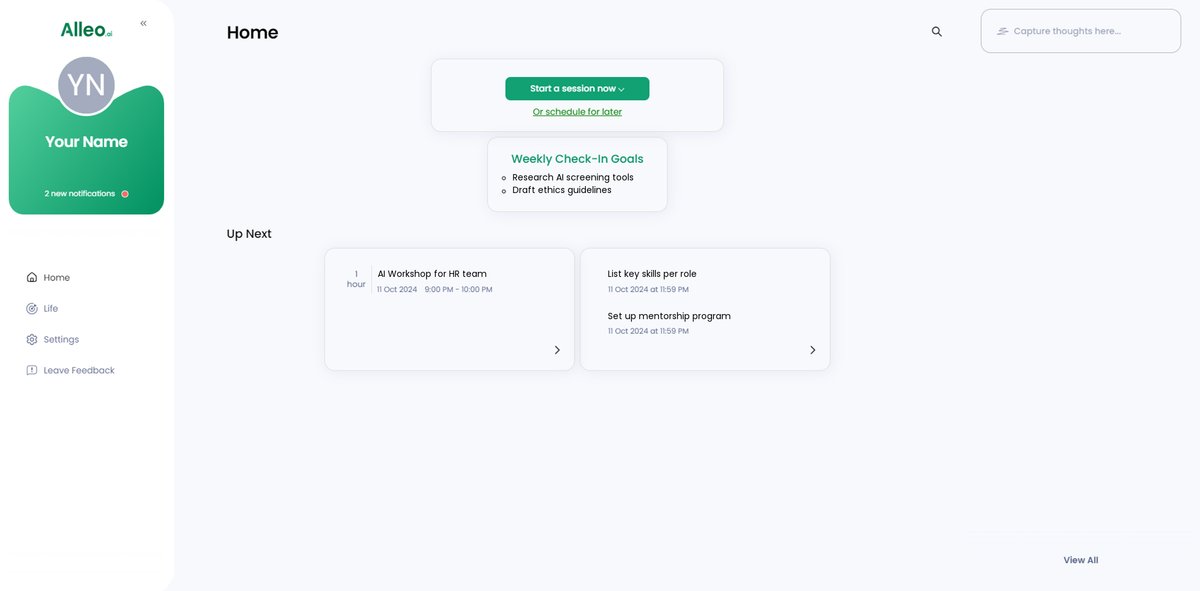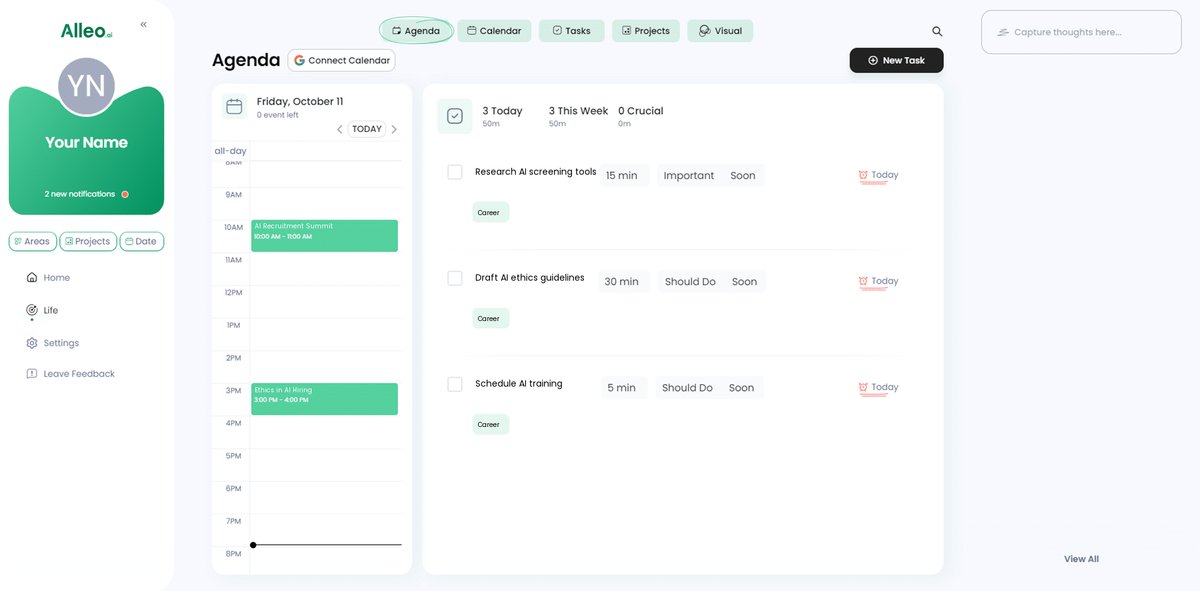4 Game-Changing Strategies for HR Professionals Adapting to AI in Recruitment
Imagine a world where recruitment processes are seamless, efficient, and fair – all thanks to AI in recruitment strategies. These innovations are revolutionizing how we approach talent acquisition and HR processes.
As a life coach, I’ve helped many professionals navigate these challenges. In my experience, adapting to new technologies like AI-powered recruitment tools can be daunting, but it’s essential for staying competitive in today’s job market.
In this article, you’ll discover strategies for HR professionals to adapt to AI in recruitment. We’ll cover AI-powered tools for data-driven candidate screening, skills-based hiring frameworks enhanced by machine learning for talent acquisition, and ethical guidelines to address AI bias in recruitment.
Let’s dive in to explore how automation in HR processes and predictive analytics in HR are reshaping the recruitment landscape.

Understanding the Struggles of Modern Recruitment
Navigating recruitment has become increasingly complex with the rise of AI in recruitment strategies and machine learning. Many recruiters find themselves overwhelmed by the need to stay current with these rapidly evolving technologies, including AI-powered recruitment tools.
This is not just a minor inconvenience; it significantly impacts their efficiency and competitive edge in implementing automation in HR processes.
For instance, several clients report feeling pressured to integrate virtual reality in candidate assessment. This requires not only technical know-how but also a shift in traditional recruitment mindsets, particularly when considering machine learning for talent acquisition.
The transition can be daunting and stressful.
Adapting to these technologies is critical to remain relevant in today’s job market. Yet, the challenge lies in effectively incorporating these tools without losing the human touch, while also addressing concerns about ethical AI in hiring practices.
Many professionals initially struggle with balancing automation and personal engagement, especially when implementing data-driven candidate screening.
Ultimately, these technological advancements can streamline recruitment processes. However, they also introduce new pressures and require continuous learning and adaptation, particularly in areas such as AI bias in recruitment and skills assessment using artificial intelligence.

Strategic Solutions for Adapting to AI in Recruitment
Overcoming this challenge requires a few key steps. Here are the main areas to focus on to make progress with AI in recruitment strategies.
- Implement AI-powered recruitment tools for resume screening: These tools streamline initial resume reviews, saving time and reducing bias through data-driven candidate screening.
- Develop skills-based hiring frameworks: Focus on essential skills for roles to enhance candidate assessments using artificial intelligence.
- Create AI ethics guidelines for recruitment: Ensure fair and ethical AI usage in hiring practices to address AI bias in recruitment.
- Train HR team on AI tools and data analysis: Equip HR professionals with the knowledge to leverage AI effectively in automation of HR processes and machine learning for talent acquisition.
Let’s dive into these AI in recruitment strategies!
1: Implement AI-powered resume screening tools
Integrating AI-powered recruitment tools can revolutionize the recruitment process by enhancing efficiency and fairness, making it a crucial component of AI in recruitment strategies.
Actionable Steps:
- Research and select appropriate tools: Identify the best AI-powered resume screening tools that fit your organization’s needs. Aim to reduce time spent on initial resume screening by 50%, leveraging machine learning for talent acquisition.
- Integrate tools with existing systems: Ensure seamless integration of AI tools with your current HRIS for smooth transition and functionality within one month, focusing on automation in HR processes.
- Continuously monitor and adjust: Regularly review the performance of AI tools to ensure they deliver desired results. Aim for quarterly performance reports and adjustments, considering ethical AI in hiring practices.
Key benefits of AI-powered resume screening:
- Significant time savings in initial candidate evaluation
- Reduction in unconscious bias during screening
- Improved consistency in candidate assessment through data-driven candidate screening
Explanation: Adopting AI-powered resume screening tools is crucial for streamlining initial resume reviews, saving time, and reducing AI bias in recruitment.
According to SHRM, 86.1% of recruiters utilizing AI report that it accelerates the hiring process. This step is essential for staying competitive and maintaining efficiency in recruitment.
Taking these steps will set a strong foundation for leveraging AI in recruitment strategies.

2: Develop skills-based hiring frameworks
Establishing skills-based hiring frameworks is essential in adapting to AI in recruitment strategies and AI-powered recruitment tools.
Actionable Steps:
- Identify and document key skills for each role: Collaborate with department heads to outline essential skills for various positions. Aim for a comprehensive skills list for each role within two weeks, utilizing data-driven candidate screening approaches.
- Create or adopt skills assessment tools: Develop or incorporate tools to effectively assess candidates’ skills using artificial intelligence. Implement these tools within one month, considering ethical AI in hiring practices.
- Pilot and refine the framework: Run a pilot program to test the skills-based hiring framework and gather feedback. Review the pilot program results and refine the framework within three months, leveraging machine learning for talent acquisition.
Explanation: Creating skills-based hiring frameworks ensures that candidates are assessed on their abilities relevant to the role, promoting fairer hiring practices and addressing AI bias in recruitment.
According to SHRM, 86.1% of recruiters utilizing AI report that it accelerates the hiring process. This approach aligns with industry trends and enhances recruitment efficiency through automation in HR processes.
By focusing on skills, you can better match candidates to roles and improve overall hiring outcomes, leveraging predictive analytics in HR and AI-assisted onboarding techniques.

3: Create AI ethics guidelines for recruitment
Creating AI ethics guidelines for recruitment is essential to ensure fairness and transparency in AI-powered recruitment tools and processes.
Actionable Steps:
- Assemble an ethics committee: Form a team of HR professionals, ethicists, and AI experts to draft guidelines for AI in recruitment strategies. Aim to establish this committee within one month.
- Draft and review guidelines: Develop clear and comprehensive AI ethics guidelines for machine learning in talent acquisition. Ensure the draft is completed and reviewed by stakeholders within two months.
- Implement and educate: Roll out the guidelines and conduct training sessions for HR staff on ethical AI in hiring practices. Aim for all HR staff to be trained on the new guidelines within one month of implementation.
Key components of AI ethics guidelines:
- Transparency in AI decision-making processes for data-driven candidate screening
- Regular audits for AI bias detection and mitigation in recruitment
- Clear protocols for human oversight and intervention in automation of HR processes
Explanation: Establishing AI ethics guidelines is crucial for maintaining fairness in recruitment. This step helps mitigate biases and ensures transparent decision-making in AI-powered recruitment tools.
According to the Department of Labor, ethical AI use is paramount for worker well-being. Implementing these guidelines will align your recruitment processes with industry standards and build trust.
By prioritizing ethical AI practices, you can enhance the integrity of your AI in recruitment strategies.

4: Train HR team on AI tools and data analysis
Training your HR team on AI tools and data analysis is crucial for leveraging technology effectively in AI in recruitment strategies.
Actionable Steps:
- Conduct workshops and training sessions: Organize workshops on using AI-powered recruitment tools and understanding data analytics. Aim to conduct at least two workshops within three months.
- Establish mentorship programs: Pair less experienced HR staff with tech-savvy mentors. Ensure the mentorship program is established and running within one month.
- Encourage continuous learning: Provide resources for ongoing education in AI and data analytics. Develop continuous learning plans for all HR staff within two months.
Essential skills for HR professionals in AI-driven recruitment:
- Understanding of AI algorithms and their applications in talent acquisition
- Data interpretation and analysis capabilities for predictive analytics in HR
- Ethical considerations in AI-assisted decision making and addressing AI bias in recruitment
Explanation: Equipping your HR team with the right skills and knowledge is vital for effective AI integration. These steps ensure your team remains proficient and up-to-date with technological advancements in automation in HR processes.
According to AIHR, continuous learning and upskilling are essential for adapting to AI trends in HR. By fostering a learning culture, you enhance your team’s ability to leverage AI in recruitment strategies for improved outcomes.
Implementing these training initiatives will prepare your HR team for the future of recruitment, including skills assessment using artificial intelligence and AI-assisted onboarding techniques.

Partner with Alleo on Your AI Journey
We’ve explored the challenges of adapting to AI in recruitment strategies, the benefits of overcoming them, and practical solutions. But did you know you can work directly with Alleo to make this journey easier and faster?
Setting up an account with Alleo is simple. Create a personalized plan tailored to your specific needs, including AI-powered recruitment tools and automation in HR processes.
Alleo’s AI coach will guide you through mastering AI tools and strategies for talent acquisition. The coach provides full sessions, much like a human coach, focusing on ethical AI in hiring practices and data-driven candidate screening.
You’ll get progress updates, handle changes, and stay accountable through text and push notifications, helping you implement machine learning for talent acquisition effectively.
Ready to get started for free? Let me show you how to revolutionize your AI in recruitment strategies!
Step 1: Log in or Create Your Account
To begin your AI-powered recruitment journey, Log in to your account or create a new one on the Alleo platform.

Step 2: Choose Your Focus Area
Click on “Building better habits and routines” to start improving your recruitment processes with AI. This goal will help you develop consistent practices for implementing AI tools and adapting to new technologies in your HR workflow.

Step 3: Select ‘Career’ as Your Focus Area
Choose ‘Career’ as your focus area to align with your goal of adapting to AI in recruitment, allowing Alleo’s AI coach to provide tailored strategies for implementing AI tools, developing skills-based frameworks, and enhancing your HR team’s capabilities in this rapidly evolving field.

Step 4: Starting a coaching session
Begin your AI-powered recruitment journey with an intake session, where you’ll discuss your goals and challenges, allowing the Alleo coach to create a personalized plan for integrating AI tools into your hiring process.

Step 5: Viewing and managing goals after the session
After your coaching session with Alleo’s AI coach, check the app’s home page to review and manage the goals you discussed, allowing you to track your progress in adapting to AI-driven recruitment strategies.

Step 6: Adding events to your calendar or app
To track your progress in adapting to AI recruitment tools, use the Alleo app’s calendar and task features to add important events, deadlines, and milestones related to implementing AI-powered resume screening, developing skills-based frameworks, and training your HR team.

Embracing AI for a Brighter Recruitment Future
As we conclude, let’s reflect on the journey we’ve taken. Adapting to AI in recruitment strategies can seem overwhelming, but it’s a journey worth embarking on.
Remember, the key steps are implementing AI-powered recruitment tools like resume screening, developing skills-based hiring frameworks, creating AI ethics guidelines for ethical AI in hiring practices, and training your HR team. These actions will help you stay competitive and efficient in your automation of HR processes.
I understand the challenges you face with AI in recruitment strategies. You’re not alone in this.
Consider leveraging Alleo’s AI coach to simplify this transition. Alleo can guide you through every step, ensuring you make measurable improvements in your machine learning for talent acquisition.
Are you ready to transform your recruitment process with AI in recruitment strategies?
Start your free journey with Alleo today and explore the potential of data-driven candidate screening.